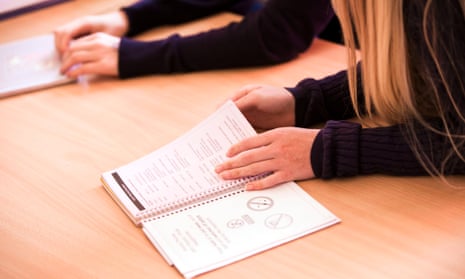More than four in 10 girls between the ages of 13 and 17 in England say they have been coerced into sex acts, according to one of the largest European polls on teenage sexual experiences.
The survey, also carried out in Bulgaria, Cyprus, Italy and Norway found that teenage girls in England reported the highest rates of sexual coercion, with about one in five (22%) saying they had suffered physical violence or intimidation from boyfriends, including slapping, punching, strangling and being beaten with an object.
The research by the Universities of Bristol and Central Lancashire and the NSPCC found that a high proportion of teenage boys regularly viewed pornography, and one in five harboured extremely negative attitudes towards women.
The study comprised a school-based survey of 4,500 children and 100 interviews with young people across the five countries.
Dr Christine Barter, an NSPCC senior research fellow based at Bristol’s School for Policy Studies, said the findings highlighted the dangers that young children were being exposed to because of a lack of support.
“Our research findings show that across Europe violence and abuse, both offline and online, in young people’s relationships constitutes a major problem, yet in most countries it remains unrecognised, leaving young people with little support or appropriate services,” she said.
In the interviews, many children said the pressure to have sex was so persistent that it had become “normal”. Katie, a 15-year-old who took part in the survey in England, told the researchers: “I’ve had relationships where I wouldn’t be able to go out with my friends because they’d get angry with me. I have been raped and other things like that.”
Almost four in 10 (39%) English boys aged 14-17 said they regularly watched pornography, and 18% strongly agreed with statements such as “It is sometimes acceptable for a man to hit a woman if she has been unfaithful” and “Women lead men on sexually and then complain about the attention they get”.
Some teenagers in relationships said their partners controlled their online behaviour, checking their social media activity and telling them whom they could “friend”. Such controlling online behaviour was linked to “real life” abuse, said the report.
It also found that young people reporting violence and abuse in their relationships were at least twice as likely to have sent a sexual image or text. Among the 1,001 children surveyed in England, 44% of girls and 32% of boys had sent a sexual image or text to their boyfriend or girlfriend – the highest rate among the five countries. Just over 40% of girls who sent sexual images or texts said they had been shared by their boyfriend with other people.
Just under half of girls and boys in England had received such messages, and 27% said they had sent them because they felt pressured by a partner to do so.
Girls who took part in the study revealed “serious distress and harm following abusive behaviour from boyfriends”, said the report’s co-author Nicky Stanley, a professor of social work at the University of Central Lancashire. “Education and campaigns need to challenge stereotypical behaviour and attitudes in boys and the law in this area should be clearly communicated to young people, their parents and teachers,” she said.
Claire Lilley, head of child safety online at the NSPCC, said the research, funded by the European commission, should act as a wake-up call for the government to make sure teenagers receive clear teaching about healthy relationships. The Department for Education has long resisted calls from campaigners to make sex and relationship education compulsory for all students.
“The levels of victimisation revealed by this research shows action is urgently needed by the government to make updated sex and relationship education a statutory right for every child and young person,” Lilley said. “There needs to be a greater focus in schools on topics such as sexual exploitation and violence against girls and young women, as part of a balanced curriculum.”
